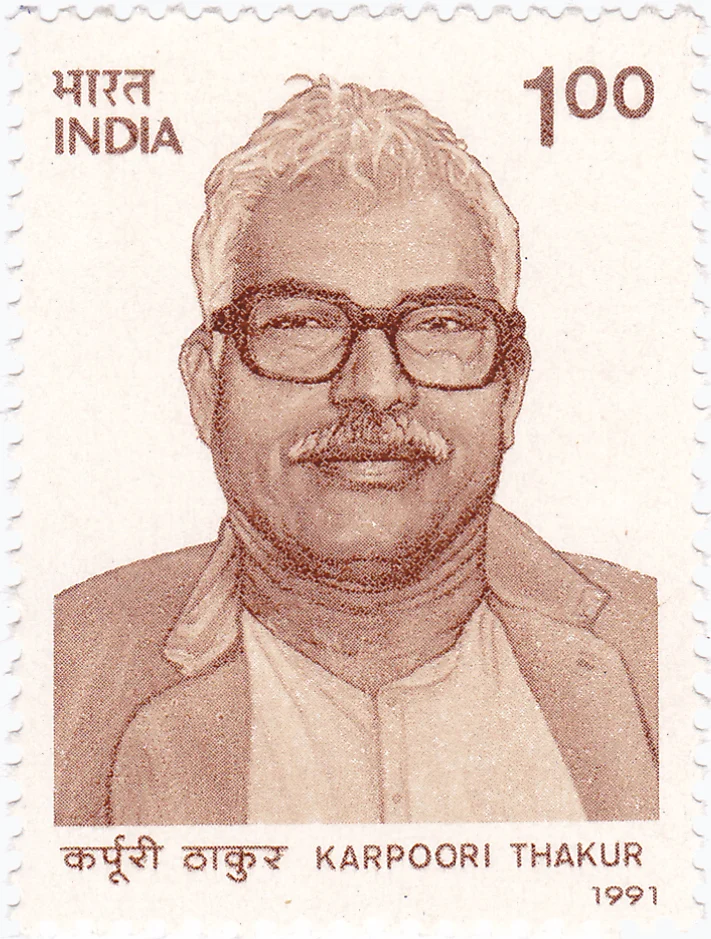Bharat Ratna to Karpoori Thakur has got mixed reaction. Some have lauded while many questioned the timing and motives behind it. Some have even wondered that the government on one hand honored him while it has time and again opposed his model of social justice by stalling caste census. Many also argued that it was more political and less social. It is believed that award to Thakur changed the political chessboard of Bihar.
Experts also claimed that if BJP was serious about the concept of social justicepromoted by Thakur, it would have accepted reservations, caste census and affirmative action for OBCs, SCs, STs and minorities without questioning it.
Nalin Verma, in his article, “When Karpoori Thakur’s Government Fell and He Faced Sangh Abuse,” published in The Wire on January 24 has explained, “Thakur had then been running his government with the support of Jan Sangh… The Jan Sangh founder in Bihar, Kailashpati Mishra, was the finance minister in the Thakur-led cabinet. The MLAs of this faction came out in the open on the streets, opposing Thakur and verbally abusing him,” veteran socialist leader and national vice-president of the Rashtriya Janata Dal, Shivanand Tiwary, said.
“Rashtriya Swayamsevak Sangh (RSS) cadres – most from the ‘upper’ caste – shouted the slogan, “Ye reservation kahan se aai, Karpoorikemaibiyayi.” Translated, it asks, ‘Where did this reservation come from? Karpoori’s mother has birthed it.” Sangh Parivar cadres often turned violent and in many places incited the ‘upper’ castes against the backward castes, leading to bloody clashes. Thakur’s government fell in 1979, soon after the implementation of this reservation,” Verma added.
According to Afroz Alam, Professor and Head, Department of Political Science, MANUU, said,“Bharat Ratna to Thakur, an icon of social justice in India in general and Bihar in particular,may have several probable intents and impacts:
“First, by appropriating Thakur, BJP may be attempting to consolidate the support of OBC voters and project itself as a party that values social justice more than the claims of opposition parties. In other words, BJP might aim to demonstrate its commitment to marginalized communities, potentially gaining their trust and votes.
“Secondly, by honoring Thakur, BJP intends to neutralize Mahagathbandhan/INDIA’s narrative on social justice and caste census.
“Thirdly, BJP may also want to improve its public image from “Brahmin-Bania” party to “Catch-all” party by associating itself with its ideological opponent but relevant figure in state politics to enhance its electoral prospects.
“Be that as it may, it is likely to impact the voting patterns of OBC communities in the upcoming Lok Sabha elections in 2024.”
Many of Thakur’s decisions include removal of English as a required subject for matriculation exams, ban on alcohol, preferential treatment of unemployed engineers in government contracts, which led to employment of about 8,000 of them during a time when unemployed engineers were staging regular protests in hopes of finding work (Nitish Kumar was one such protestor at the time).
The Thakur government also issued a circular saying that officials would face consequences if they utilized English for official business, that state-central government correspondence should only be conducted in Hindi, and that English may only be used with specific authorization.
English typewriters were taken out of the secretariat, English was banned from universities and colleges, and a new method known as “pass without English” was implemented. Bihar Public Service Commission now offers English as an optional language.
Thakur was the education minister of Bihar from March 1967 to January 1968. During this short stint too, he took decisions like removing English as a compulsory subject for Class 10 exams in Bihar as students from poor families, mainly those studying in government schools, found it tough. The very decision might have provided some relief to the students from Hindi background but its negative implications are still evident.
Now even senior BJP leader and former Dy CM Sushil Kumar Modi has recently said that time has come to rethink the Karpoori Thakur doctrine that dispensed with the necessity of English in the state’s education framework.
Thakur was such a leader that even opposition leaders respected him. He was an honest politician – a rare phenomenon now. BJP leader Bhola Singh narrates an interesting memoir. He writes that Thakur became Chief Minister but his house remained desolate. He did not pay attention to getting his house built. Later, 50,000 brick were sent to build his house, but instead of building his house with those brick, Thakur built the village school. If we keep some of his policies aside, he is an example for political leaders today for selfless service.


